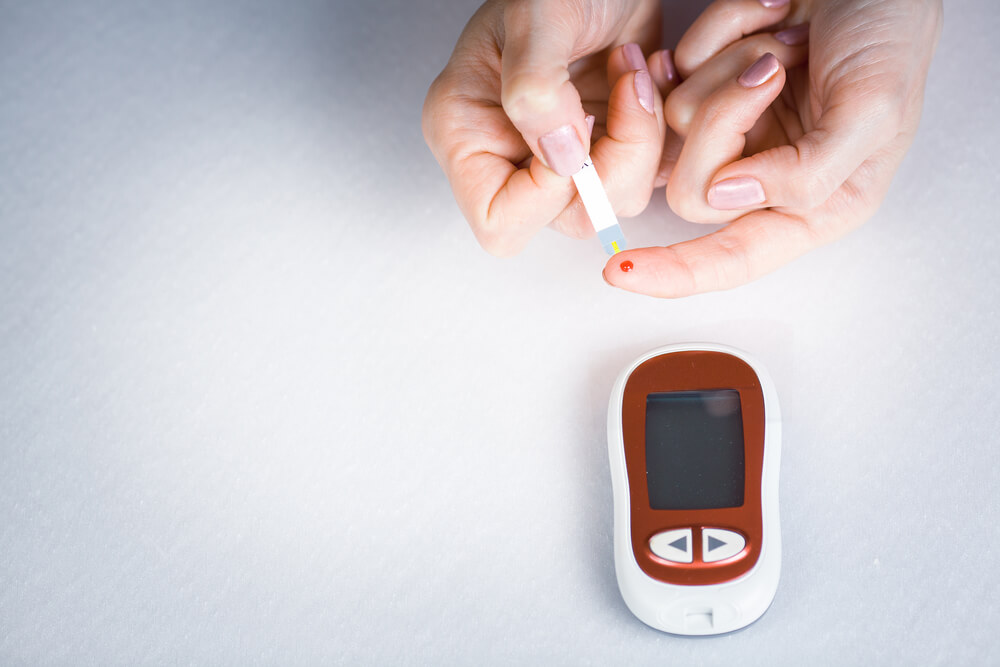Common High Blood Sugar Symptoms and Tips On How to Lower It
Hyperglycemia is the medical name for high blood sugar or high blood glucose. According to the U.S National Library of Medicine, both sugar and glucose come from what you eat and insulin is the hormone that moves these sugar cells through your body in order to give you energy. When someone is struggling with Hyperglycemia, the body isn’t producing enough insulin to help convert these sugar and glucose cells into energy. In this article we are going to touch on the warning signs of high blood sugar and their symptoms as well as how to lower high blood sugar and ultimately help your overall health.
Often times hyperglycemia is related to diabetes and it happens when incorrect foods are being consumed or the medicine needed to treat diabetes isn’t being taken. If you are unsure weather you have Hyperglycemia, we are going to talk about high blood sugar symptoms here, continue reading to learn more.
High Blood Sugar Symptoms
Hyperglycemia is noted when your blood sugar is considered “high” by your doctor or a medical professional, meaning when it is measured above what your normal individual blood glucose target. If you are unsure of what is your normal individual blood glucose target, speak to a medical professional to find out what is your safe target. If your body maintains high blood sugar for long periods of time it can cause long lasting physical problems. These physical problems can include eye disease, kidney disease, heart attacks stroke and more. Not to mention that high blood sugar can also cause short term physical ailments. Some high blood sugar symptoms are as follows:
- Increased thirst
- Increased urination
- Dry mouth
- Dry skin
- Tiredness
- Fatigue
- Blurred vision
- Frequent infections
- Slow healing cuts
- High levels of sugar in the urine
- Unexplained weight loss
These high blood sugar symptoms can also be considered warning signs of high blood sugar. Think of what you have been doing lately in regards to food, exercise and medication. Causes of high blood sugar can be the following:
- Not enough exercise
- Too much food
- Not taking the correct amount of diabetes medication
- Insulin that has been exposed to extreme temperatures
- Stress
- Illness or injury
If you believe that you may be suffering from some of the high blood sugar symptoms, you can think about these warning signs of high blood sugar and decide for yourself weather you should speak to a medical professional about getting help.
Identifying the Cause of Warning Signs of High Blood Sugar
If you are experiencing signs of high blood sugar, these are some of the questions that you can ask yourself:
- Have you changed your portion size, or habits in regards to what you eat?
- Have you changed your physical activity routines?
- Have you been taking your prescribed medications?
- Are you feeling well overall, have you been sick?
How to Lower High Blood Sugar
If you believe that you blood sugar levels have changed, first you should speak to a health professional but in the meantime there are various things that you can change to not only help your blood sugar but your overall health.
- Drink more water: Drinking water is good for your overall health not just your blood sugar.
- Exercise: Exercise is a great way to lower your high blood sugar. Although if you have ketones, it is not recommended that you exercise. (Ketones are related to diabetes and are built up chemicals in the liver)
- Change your eating habits: Speak to a dietitian about making changes in your diet, eating differently, or less, can help lower high blood sugar
- Insulin: Speak to a medical professional about insulin, it is possible that you may have to take or receive insulin shots to help lower your high blood sugar levels.
Sources:
http://www.joslin.org/info/high_blood_glucose_what_it_means_and_how_to_treat_it.html

